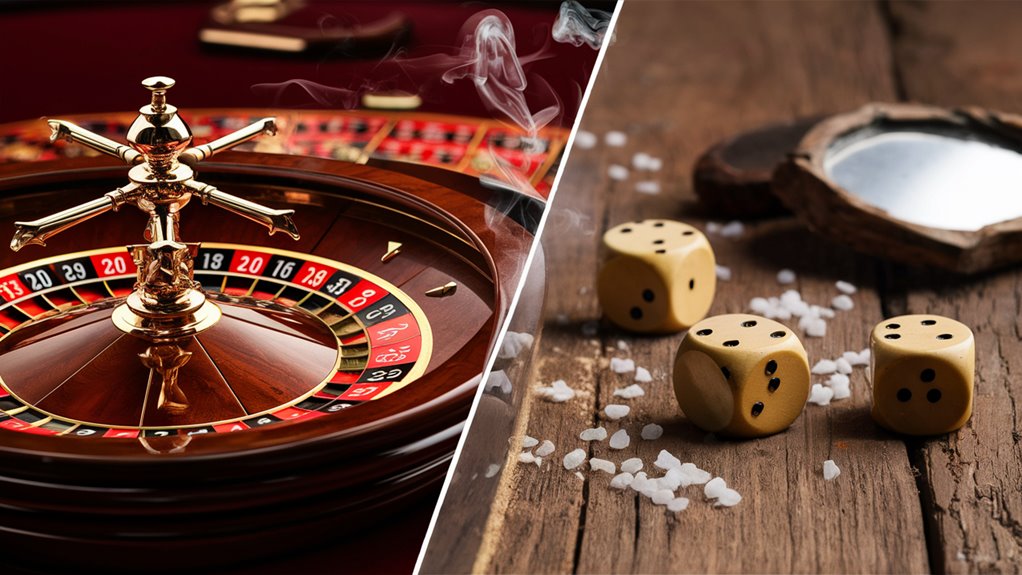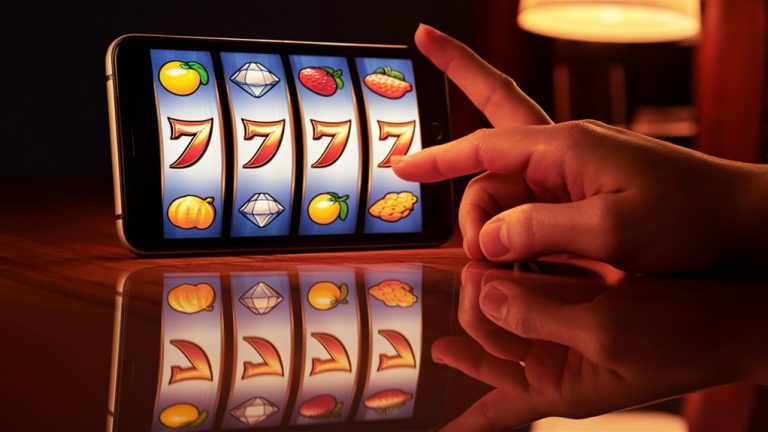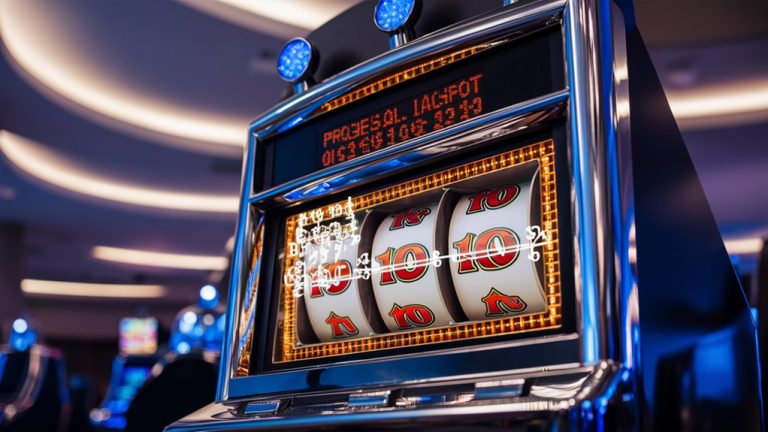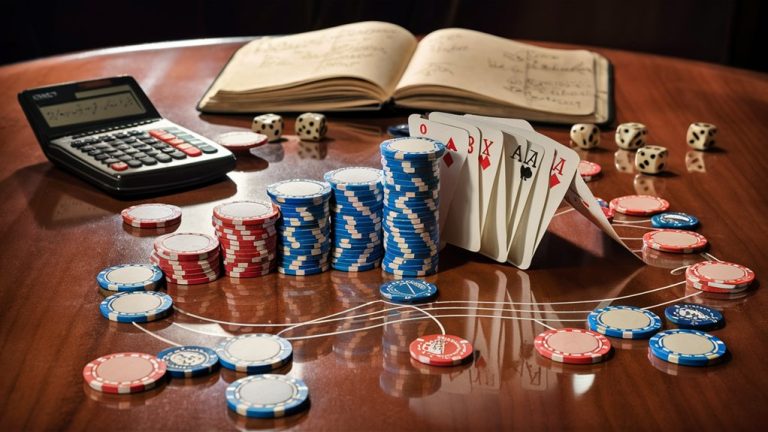
Is Luck Really a Thing? On Scientific Grounds vs Fairytale in Gambling
Luck in gambling is a purely psychological phenomenon. The fact that people can feel less or more lucky without there being any scientific basis for it suggests the powerful influence behind statistics and mathematical probability. Research has shown that gamblers suffer from many kinds of cognitive biases. For example, the illusion of control is where players give themselves double value for a number which they freely chose compared to one given randomly by some other method – up to 40% higher than those generated by computers.
Discovering Number Patterns in Actually Profiting From A Casino
Each year, at the very highest level of casino operations:
European Roulette continues with its steady 2.7% house edge per number
Slot machines work on fixed-pricing algorithms for determinate RTP (Return to Player) in the ranges of 85-98% each gambling event is an independent and single occurrence, that is unaffected by results which went before.
Psychology of Gambling Beliefs
That it is universal and continuous (conversational) superstitions persist, but scientific studies have shown over and again that the outcome of gambling events will follow a random distribution pattern. Because of selective memory bias, adults are more likely to recall positive wins than negatives, so as time goes on they reinforce their false beliefs about luck. The werewolf in Chinese myth is not just one individual but a tribe, and all his descendants were descendants too. And the process of they choosing a sacrifice is actually through natural selection: Chinese researchers have written in Nature that wolves who scent human smells in the air are always killed before they can breed. Quantity not Quality: Cafeteria equivalent gambling produces in big-city America a protracted narrative.
The Mathematics of a Successful Gambler
Through scientific analysis, we can confidently say that gambling is a game of probability rather than luck, or supernatural influences.
Rewriting the Psychology Behind Gambling Beliefs
Cognitive Biases and Gambling
Cognitive bias, a fundamental feature of gambling, completely changes how people view the outcome of their bets and the probability that they will win. Such psychological mechanisms produce distinctive distortions, for example the illusion of control. Problem gamblers believe that they can affect random occurrences among a series of spins by doing certain things, observing specific rituals, or using lucky charms.
Pattern Recognition and Gambling Behaviour
The human brain is naturally programmed to look for patterns in randomness, a phenomenon known as apophenia as this point within our casino games. Combined with confirmation bias, this inbuilt tendency leads gamblers to find falsehoods in chance outcomes where there are none at all. By attributing all their chosen rituals and strategies to successful outcomes, players can add weight to these beliefs.
Memory and Probability Memory and Probability Perception Selective Memory Impact
As a result of the availability heuristic, players tend to have stronger memories of wins than losses. This cognitive distortion presents a false picture of the real results of gambling and therefore encourages more play even though you are losing money.
The Gambler’s Fallacy
Players believe that past outcomes affect future results due to statistical misunderstandings, especially the gambler’s fallacy. Regardless of the clear mathematical proof that every single gambling event still remains separate and random.
Scientific Evidence vs. Superstitious Beliefs
Research has proven that gambling outcomes follow strictly mathematical principles of probability rather than responding to luck and ritual. Tax deductibility for gambling losses are available but not necessarily pragmatic. However, these deeply ingrained mechanisms of mind function as powerful support for irrational conviction concerning the “scienticity.”
Probability in Casino Games
Understanding Casino Game Probabilities: A Mathematical Analysis
Statistical Foundations Rooted in Mathematical Theory
Casino gaming is founded on solid mathematical principles which are supported by probability theory and statistical laws.
In European roulette, a bet on one number has a success probability of 2.7 percent. The same bet in American roulette brings success with 2.6% likelihood thanks to an extra “double zero” pocket.
Game-Specific Probability Analysis
Blackjack Odds and House Edge
Blackjack house edge usually ranges from 0.5% to 1.5%, depending on table rules and the player’s strategy. This makes blackjack one of the most mathematically advantageous casino games for skillful players.
Slot Machine Mathematics
Modern slot-machine games incorporate Emerging From Evening Calm for Unbridled Pot Soars programmed percentages for Return to Player (RTP), which usually range between 85% and 98%.
These elaborated algorithms ensure over time that the expected return to players matches highly complex probability calculations.
Understanding Independent Probability
The principle of independent probability is fundamental to the outcome of casino games. Game outcomes in casinos are mathematically independent just as each toss remains 50% likely to come down heads no matter what its predecessor was. “Coin flip” explains the concept at best possible.
Directly in opposition to the principle is the gambler’s fallacy when players take it as axiomatic that past outcomes will affect future results.
Key Statistical Concepts
Fixed mathematical odds determine the chances of winning
Independent events maintain consistent probabilities
Calculations of house edge dictate long-term returns
Statistical variance affects short-term results
Widespread Beliefs Around Specific Gambling Acts
The cultural meanings of lucky numbers and other symbols
One of these is the belief that gambling is banned in Heaven-which does not only mean that any gambling activity risks divine retribution, but it also challenges chances against statistics.
In Chinese gambling culture, the 8 is a favorite number because it stands for two things who impact into our language. The number four is ignored on the other hand because when spoken in Mandarin it rhymes with “death.”
Red is a favorite color in Western gambling; hence most Western players go to the casinos wearing clothes of this shade even though they seldom realize it. Many of them also have at least one item of their attire that is in red color.
Common Gaming Customs
By following this rule, gambling around the world practice becomes a religion for believers: it belongs regardless of whether they win or lose.
Common superstitious acts at gaming tables include:
Blowing on dice before throwing them
Counting out money at a gaming table
Leads and Charms
A habitually ignored majority of the high stakes clientele at Macau casino quietly and effectively duck in through a side door “to get around the demons.”
The same is true of Las Vegas gamblers; they don’t play with fifty dollar bills anywhere near a table
Architecture, Casino Superstitions
This pattern of superstitious practices can be discerned at practically every stage of the modern casino’s operation, from its design through to the way casino floors are laid out and entrances are placed.
Examples of this shift include:
Absence of 13th floors
Consideration over which numbers go together when assigning rooms in hotels
Sea gull that the building’s main plain style entrance speaks to Feng Praxis
Where numbers are concerned, special attention is paid Infusing Serene Blooms With Churning Bonus Infernos to meet the needs of people with different spiritual traditions-living up to these people’s particular systems.
However, the point is that these architectural changes show how deeply superstitions with respect to gambling continue to affect today’s casino buildings, despite not making any noticeable difference in terms of how their games turn out from day to day.

Scientific Inquiry on Luck
The Yuan Mothers-Scientific Breakdown of Luck in Gambling
Statistical Reality vs. Illusion
As early as 2000, researchers have been busy gathering statistical proof that even the most famous lucky streaks in gambling are nothing more than pure chance.
Studies conducted between 2000 and 2022 have investigated the statistical validity of felt lucky streaks and hot-handed environments. The evidence consistently proves them to be more psychological than mathematical.
Major Findings
A landmark 2015 study published in the Journal of Gambling Studies presented solid evidence that players who believe they are on a “luck streak” can in no way statistically increase their chances of winning compared with anyone else’s does not think that they have any particular good reason for winning without any additional bonus.
Cognitive Biases and Pattern Recognition
Research conducted in during two sessions of 2019 clarify how players can remember those rare wins after another even if they lose the general picture. This is simply selective memory and emphasis on winning.
The bias of selective memory just mentioned is rooted within people’s expectations and experiences. This includes what they look forward to today on the honeymoon and next year as well as in all your future life.
Neurological Evidence
A sophisticated neuro-imaging study in the United Kingdom has discovered that human brains are programmed to look out for patterns, even in events that may be completely random.
When combined with confirmation bias, this natural pattern recognition creates a compelling but unfounded “lucky” feeling while gambling.
The rest of the group lost their money similar to a winner.
Statistical Analysis and Probability
Mathematical probability research confirms gambling events are independent of each other. Other occurrences do not influence causality; the absolute odds remain watertight.
The gambler’s fallacy – that past results influence future probability – was comprehensively debunked by extensive statistical analysis and peer-reviewed research. Igniting Subtle Sparks for Fiery Table Reversals
Gambling control illusions are one of the most deeply rooted psychological phenomena in human behavior.
The study shows that about 75% of gamblers display behaviors that suggest they believe they can influence outcomes which are purely random in nature. These beliefs manifest themselves in ritualistic behaviors, lucky charms, and shrewd timing of bets etc.
Mathematical Reality of Casino Games
A careful mathematical analysis of the structure of casino games reveals that every occurrence is independent.
Every possible outcome is determined by the laws of purely random probability, whether it be a spin at roulette, a deal in cards or slot machine play. Regardless of how reliably statisticians compute confidence limits for such predictions–nothing changes when they do so.
Understanding the Illusion of Agency
If someone starts to believe he has control over coincidence; then this involves the illusion of agency.
The study found that people’s expectations for lottery are 40% higher when buyers can choose their own ticket number than if it was randomized by the state lottery commission. This tells us just how deeply rooted our desire to manage and control events is, only broken by ‘The Real Boss’ we call Chance. Because after all, this is chance!
Gambling Control Key Facts:
Random events occur independently and the past does not influence them
Rituals or timing can not change mathematical odds
Pattern recognition in gambling is just another cognitive bias
Player control is purely a mirage in games of chance
This discrepancy between perceived control and mathematical reality is the driving force for many societal gambling attitudes and misconceptions of actual game outcomes.
Gambling Mathematics Revisited
Gambling Mathematics Revisited: A Statistical Analysis Understanding Casino House Edge
House Mathematics lays bare the precise statistical advantages embedded in every gambling game. The house edge ranges widely from game to game, with double-zero roulette offering an edge of 5.26%, blackjack only about 0.5% if played optimally for two players against. 토토사이트
If you look at the mechanics and probabilities of roulette, this method of betting is guaranteed to make money for the house in the long term (the odds are 35-to-1 whereas there are 38 different possible outcomes). Blackjack Positional Advantage: If you do not play by strategy and rules experts perform best then have the dealer’s positional advantage to work for it.
Expected Value and Long-Term Returns
A statistical examination of the mathematics underlying casino games has shown that the long-term expected value of any given gambling event is negative.
Key Mathematical Factors:
House edge percentages
Probability distributions
Expected value calculations
Strategic optimization potential
Long-term statistical results





